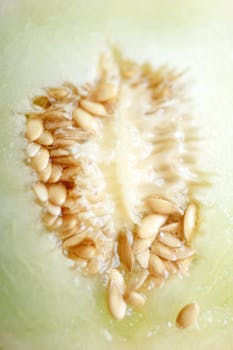Can dogs eat celery seeds? If you're a pet parent who enjoys adding flavorful spices to your dishes, you may wonder if this healthy ingredient is safe to share with your furry friend. While celery seeds offer some health benefits, they can also pose risks if not given properly. Let's explore whether dogs can safely consume celery seeds, the potential benefits, and safety tips to keep in mind.
🥦 What Are Celery Seeds?
Celery seeds are tiny, brown seeds harvested from the celery plant. They are often used as a spice in cooking, adding a subtle, earthy flavor to soups, salads, and marinades. These seeds are packed with nutrients like calcium, iron, and antioxidants, which make them a popular choice in human diets. But when it comes to dogs, their safety requires careful consideration.
🐕 Are Celery Seeds Safe for Dogs?
Yes, celery seeds can be safe for dogs in small, controlled amounts. However, they are not a necessary part of your dog's diet and should only be given occasionally as a treat or supplement. While the seeds contain beneficial nutrients, they also carry risks, especially for dogs with certain health conditions.
Before offering celery seeds to your dog, it's essential to understand both the benefits and the potential hazards. Always consult your veterinarian before introducing new foods or supplements to your pet's diet.
🌿 Benefits of Celery Seeds for Dogs
When given in moderation and under veterinary guidance, celery seeds can provide a few health benefits for dogs. Here's what they might offer:
- - Anti-inflammatory properties: Celery seeds are known for their anti-inflammatory effects, which may help dogs with arthritis or joint pain.
- - Rich in antioxidants: These seeds contain compounds that help fight oxidative stress, supporting overall health.
- - Supports urinary health: Celery seeds have diuretic properties, which can promote a healthy urinary system by flushing out toxins.
- - Nutrient content: They are a natural source of essential minerals like calcium, magnesium, and iron.
While these benefits sound appealing, it's important to remember that there are safer, more effective ways to support your dog's health without relying on celery seeds.
⚠️ Risks and Safety Tips
Despite their potential benefits, celery seeds are not without risks. Certain dogs should avoid them entirely, and improper use can lead to health complications. Here are some key considerations:
- - Allergic reactions: Some dogs may be allergic to celery or its seeds, leading to symptoms like itching, swelling, or digestive upset.
- - Diuretic effects: While the diuretic properties of celery seeds can be beneficial, they may not be suitable for dogs with kidney or bladder issues.
- - High sodium content: If the seeds are salted or processed, they may contain excessive sodium, which is harmful to dogs.
- - Overconsumption risks: Too many celery seeds can cause digestive upset, including vomiting and diarrhea.
To minimize these risks, follow these safety tips:
- - Always consult your veterinarian before introducing celery seeds to your dog's diet.
- - Use only plain, unsalted celery seeds without additives or preservatives.
- - Start with a tiny amount (e.g., a pinch) and monitor your dog for any adverse reactions.
- - Avoid giving celery seeds to dogs with kidney disease, bladder issues, or food allergies.
🐾 How to Safely Introduce Celery Seeds to Your Dog
If your vet gives the green light, you can introduce celery seeds to your dog's diet in small quantities. Here are some practical ways to do so:
- - Sprinkle a tiny pinch of celery seeds over your dog's regular food.
- - Mix the seeds into homemade dog treats or meals as an occasional flavor boost.
- - Combine celery seeds with other dog-friendly herbs like parsley for added nutritional value.
Remember, moderation is key. Celery seeds should never replace a balanced, complete diet designed for dogs. They are best used as a supplementary addition, not a primary food source.
🩺 When to Avoid Celery Seeds
In some cases, celery seeds should be avoided entirely. Here are a few scenarios where these seeds may not be safe:
- - Dogs with kidney disease: The diuretic properties of celery seeds can strain the kidneys.
- - Pregnant dogs: Celery seeds may have uterine-stimulating effects, posing risks during pregnancy.
- - Dogs with known allergies: If your dog is allergic to celery or other similar foods, avoid celery seeds altogether.
When in doubt, always err on the side of caution and consult your vet before feeding celery seeds to your dog.
FAQs
Can celery seeds cure my dog's arthritis?
While celery seeds have anti-inflammatory properties, they are not a cure for arthritis. Speak to your vet about more effective treatment options for joint pain.
How much celery seed can I give my dog?
Only a small pinch of celery seeds should be given to dogs, and only with veterinary approval. Overconsumption can lead to digestive upset or other health issues.
Are celery seeds safe for puppies?
It's best to avoid giving celery seeds to puppies, as their developing digestive systems are more sensitive. Stick to a vet-approved puppy diet instead.
What should I do if my dog eats too many celery seeds?
If your dog consumes a large amount of celery seeds, monitor them for symptoms like vomiting, diarrhea, or lethargy. Contact your vet immediately if any adverse signs appear.
References
Book a $49 online vet consultation at https://www.dialavet.com for fast, expert advice.























